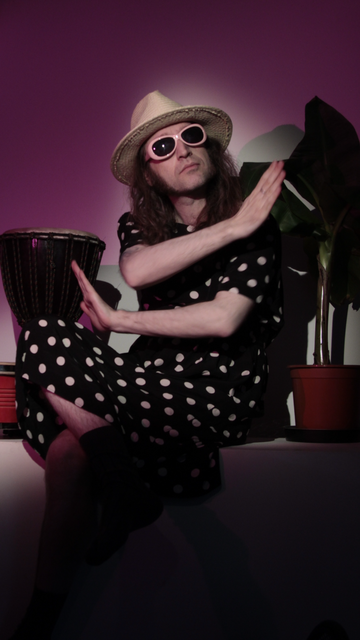
Earlier interviews with Quentin available here and here.
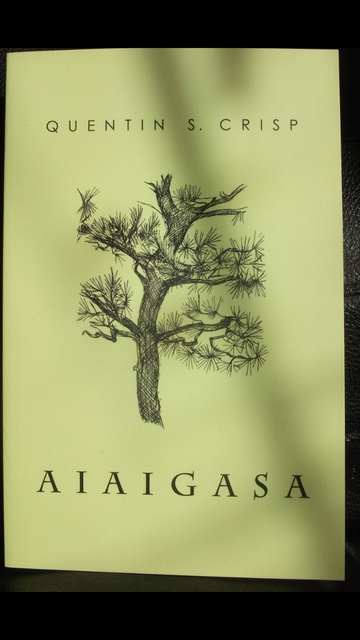
JUSTIN ISIS: The last time we had a conversation of this kind was ten years ago. That already seems like a different world, and we were both at very different stages of our lives and careers. There’s an energy to that interview that seems a bit deflated by the past decade of more or less constant worldwide social and political disasters, not to mention the ongoing ossification of the Internet and its once-revolutionary potential for social and artistic change. With that said, are there any threads from that interview that still resonate with you, or has your perspective changed completely? I know that in the past few years you’ve delved seriously into philosophy, studying it at university and pursuing a teaching career. This development doesn't seem inevitable, which makes it interesting. Metaphysical concerns were always present in your writing, but recently you’ve been engaged with very technical philosophy and logic. How has this changed your overall outlook?
QUENTIN S. CRISP: I've just read over the old conversation/interview. Yes, those were very different times. I think at that time I was still very much in thrall to some notion of postmodern playfulness. I also notice some false notes in my humour. Not all of it rings false. I mean, looking back it seems a bit manic, which is not to everyone's taste, but is not inherently a bad thing. But I think I was just a bit more susceptible to the kind of off-the-rack turn of phrase that signals a willingness (excessive, I think) to be available for informal and up-to-date banter. These days I find such humorous verbal memes a bit tiresome. Just to be clear about what I'm referring to, there are phrases like "a bonus tip" and "geddit" that I would not use now and probably only used somewhat experimentally at the time. They make me cringe. I think they are symptomatic of my tone at that time, though the tone is not entirely corrupted by this pathology. I don't know if I've just become more sensitive to this or whether the phenomenon of humorous verbal memes has exploded since then, but every time I see someone use something like "checks notes" online these days, well, let me be restrained and say that I heave a deep sigh. Anyway, to reiterate, I'm not saying all the humour in that interview is bad. I did literally lol, for instance, at question number four about vampires and Ayn Rand, though that's you and not me, of course.
As to what still resonates, there's mention in the first answer of the problem of the sign and the signified and this still preoccupies me greatly. It's something that is at the heart of St Anselm's Ontological Argument, which I've been spending a lot of time with in recent years. Other things I notice: there's some gentle ribbing of Hayden Panettiere's 'virtue signalling', though I would not have known that phrase then and think it probably had not been concocted yet. This actually makes me think of those days with some fondness. One could still mock something without being immediately identified as a deadly enemy and online interaction was not limited to the exchange of death threats. I still keep meaning to take up Tai Chi, as mentioned in that earlier interview. But the most resonant section is my answer to the question of what sets my writing apart. Pretty much all that I say there remains at the forefront of my experience of what it is to be a writer. Just to recap briefly, that is: the dilemma of how to render one's inner world in fiction when fiction demands the ability to recreate some structure that is persuasively like the outer world. I might come back to this. There's a deep conflict here that could be characterised as the clash between the mimetic and the Platonic in art.
I suppose I can use that to segue into the question about philosophy. Just to be clear, I'm not so much pursuing teaching at the moment, as contemplating it as a future possibility, but I have just finished (a year ago) an MA in philosophy and am hoping to take my studies further. There are a number of different tributaries that have converged to make this particular stream in my life and I don't think I can cover them all here. Although it wasn't always on the cards, it's also not without auguries in my life. For instance, when I was doing A-levels, one of them, after I'd reshuffled my options a bit, was Religious Studies. I took this as - at the time - a cocky young atheist. I thought I was dashingly original to be an atheist studying religion. The course was divided into the philosophy of religion and Bible studies. One of the things that sticks in my mind from that course, which was my first formal encounter with philosophy, was the Ontological Argument. I never told anyone at the time, but it immediately convinced me. Reading it constituted a small-scale mystical experience. I suppressed this, of course, and the effect faded. Decades later, the Ontological Argument was the subject of my dissertation.
There are other tributaries. Antinatalism has been one of them. The Conspiracy Against the Human Race is not the kind of thing that would appear in a philosophy lecture room, but if anyone cares to read the section of The Paris Notebooks that deals with my first reading of that text, they will see some of the reaction that was so influential in leading me eventually to my current position, which, to be entirely unambiguous for once, is philosophical theism.
I must give credit here to Daniel Corrick who put me on the right road in my reading. I had long had a haphazard interest in philosophy, particularly in relation to Parmenides and the question of Being, but, in a timely intervention, Mr Corrick suggested I take a more systematic approach and placed Edward Feser's Philosophy of Mind into my hands. A lot of things clicked into place right then. Until then I hadn't even realised there was a road to be put onto.
Among other things, I more or less completely relinquished my former anti-rationality and saw my long-standing subjectivism as a morass from which it might be possible to escape. I should add, mind you, that perhaps the better part of the problem had been the kind of people who claim rationality as their own. They had put me off it. In general, these people are not really rational at all. They are naturalists, or something of the kind. Funnily enough, I saw Stephen Fry trying to correct this widespread misconception when he said he was not a rationalist but an empiricist. Most of the people claiming to be rationalists are, in terms of general ethos, in the Stephen Fry camp. I'm not. It is precisely rationality that has made me a theist. I'm simplifying a lot here, but that's inevitable. Broadly speaking, I've come to a Platonist position, though I also feel myself in tension with certain aspects of Platonism. However, in terms of how my overall outlook has changed, I can't help seeing 'doxa' everywhere now - doxa and sophistry. The so-called post-factual society (notice that there are two political sides who each strategically hurl the insult of being 'post-factual' at the other) seems very much what Plato was warning us against in his attack on the Sophists. This fact alone would make him worth studying, apart from anything else.
Plato's criticism of poets and artists was another thing that motivated me in studying philosophy. At first I was outraged by his theoretical banishing of poets from the Republic. Well, actually, it was more the short dialogue 'Ion' that I was responding to. I think it was when I read some of Apology, though (I need to check this), that I actually came to accept his criticisms. They hit home partly because it was becoming more and more apparent that the kind of people who tend to get referred to as artists these days very seldom know anything about anything. I also had to put up my own hand and plead guilty. So, I thought, alright, I'll take up the challenge. I'll see if I can put my art on a more rational footing.
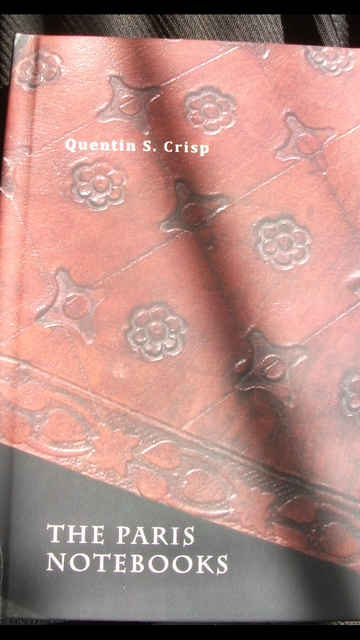
JI: At the time of that last interview, your most recent release was the novella Shrike (which, incidentally, has just been rereleased by Zagava Books). You were mostly known for horror or ‘weird fiction’ stories in collections like Morbid Tales and Rule Dementia!, although the latter work had already begun straining past the bounds of genre conventions, a trend which continued in the landmark All God's Angels, Beware! collection. Apart from your earliest stories, your work has never sat comfortably within the horror/‘weird fiction’ categories, and they seem even less relevant to where you’re at now. I do feel that this early categorization has hurt your reception somewhat, as it tends to lead to comparisons with far more conventional and predictable writers who happily inhabit the categories and are content to churn out more or less indistinguishable volumes year after year. It’s worth noting, though, that the cover description of All God’s Angels mentioned ‘Literary Romanticism.’ Given the rise of Neo-Decadence, do you see this as a better fit for your writing, or do you consider it outside these considerations altogether? I’m thinking here of sui generis stories like “Karakasa,” which resembles Neo-Decadent science fiction, and some of the more abstract works from the Defeated Dogs collection, such as “Sado-ga-shima” and “The Gay Wolf.”
QSC: Well, in terms of labels, frankly, there are only a handful that I have ever identified with as a complete person. These are: English, writer, romantic and now theist. That's not to say I think myself typical of any of these labels, but I don't feel the need to reject them. I think 'romantic' might be a bit iffy in terms of its applicability now, but, then again, I found myself very sympathetic to the writings of Schlegel recently. I think I've always had a pantheistic streak, which, combined with the idea of the importance of the individual, perhaps characterises the greater part of my overlap with romanticism. But this is me as a person.
In terms of my writing, I think there is good reason for the 'weird' label. When I write macabre, 'weird' stuff, I am not doing it as a tourist in the genre. But then, I'm not sure that I am doing it because of the genre at all. I'm interested in death, darkness, madness, the supernatural, decay, obsession, etc., in strange atmospheres, haunted places, and so on, so it's not surprising that I would often write within the genre. It's also true that my fundamental understanding of literature has always been of something that exercises the imagination to take it out of the confines of daily life. But it is almost an accident that the first stuff I've had published fitted so comfortably within the weird genre. I'd already been writing for years before then, and tended to jump between SF, fantasy and the macabre. One piece that I started writing, but never finished, was something like anime cyber-punk written in a William Burroughs style. This was all before The Nightmare Exhibition, my first collection, was published or even written.
I have to be honest here - I've never had a very clear idea of what the term 'decadence' covers, that is, where its border might lie. If I take the term at face value, it's obviously referring to the decline of civilisation, and the artistic embrace of that, I suppose. In that sense I am certainly decadent, since I think I'm very much a product of the decline of Western civilisation, but I don't think that's a good thing. I don't know, if you're born on a rubbish heap, I suppose you adapt to fit in, try to build with the materials around you and so on. But I suppose as an artistic category, the meaning is probably more specific than this. Then there's the complication of 'Neo-decadence'. Is this the decay of decay?
Maybe I can be a little playful here. Although I do see a collapsing society when I look around, and I don't think that's a good thing, maybe it's as natural as a rotting log in a forest, and a rotting log is pretty fascinating, and fungus is quite beautiful and so on. What's more, the decay of the log is needed for the overall fertility of the woods. So, if 'Neo-decadence' means something like 'looking for the fertility in decay' then I think it very much applies to my writing. But, as a situated person, I find myself largely quite depressed about social decay. I'm not sure why I need to make that qualification, but it seems significant at the moment.
In the end, I think people can call me what they want, as long as I'm not expected to live up - or down - to it.
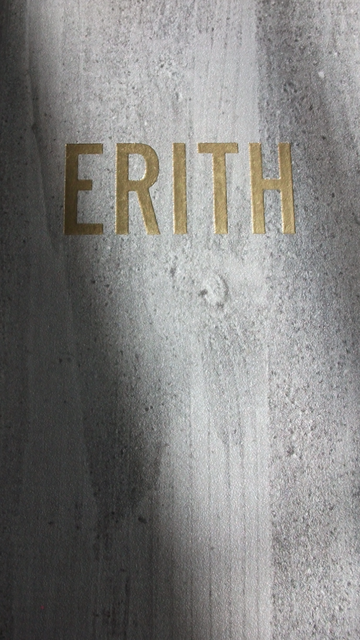
JI: Over the past decade your publications have tended increasingly towards memoir, with essayistic and diary-based works like The Boy Who Played with Shadows, The Paris Notebooks, Aiaigasa and The Flowering Hedgerow occupying the same space as the Japanese “I-novel,” without ever attempting anything like a ‘straight’ chronological autobiography. But I want to suggest that each of these books (and any forthcoming ones) could function as chapters in a single giant book that could form a working autobiography. Perhaps your month-based poetic works, which resemble Philip Larkin poems compressed by the tanka form, could act as alternating chapters or an appendix of some kind too. Given that your fiction has always included long digressive and exploratory passages, was it always your intention to head in this direction? Although the aforementioned works vary greatly in terms of when they were written, they do all seem to share a similar focus on fleeting/transient perceptions and observations of mundane reality. Often very little or even next to nothing ‘happens’ in them in the sense that we’ve come to expect from mainstream memoirs, and the relationships they depict aren't clarified in a way that most readers would expect, but there are numerous recurring themes and piercing moments of insight that would be difficult to achieve in any other format. Thus far these works have received comparatively little critical attention, and I can imagine them being somewhat frustrating for people who grew accustomed to your fiction. I’ve struggled a bit with them myself at times, but I suspect this is because the final design isn’t yet clear, and that it’s still too soon to say what they’ll look like in relation to future works. Do you see them as being in dialogue with your fiction, or something else entirely? Are they, and upcoming works of their kind, meant to amount to a super-autobiography? And do you see yourself continuing in this direction, or focusing more on stories and novels?
QSC: To answer the easiest of these questions first, the memoir- or diary-style works are very much in dialogue with my fiction, yes. All of it is, in a sense, one big work, though I hope there's a lot of variation in form, tone, texture and so on. I don't really think of any of it as autobiographical, though, except in a secondary sense. I'll write more about that below.
It wasn't always the plan to have these two sides to my writing. I think it's something that has emerged naturally from my terrible insecurities about realism. I've always been haunted by the feeling that I am not a real person, so I am never sure that I've written something that will feel real to a reader. My earliest instincts about writing were always to create a magical fantasy world for other people to enter, but I became very worried about the reality of these worlds. So, here we come back to the question of the sign and the signified. Were my words signifying anything? I became so obsessed with this question that the need emerged for me to write things where I could be slightly more confident that they do signify something. The reason I've begun to write about my own 'real life' is primarily, I would say, to try and work out this relationship with the sign and the signified. I never set out to write an autobiography. I thought that would be pointless and boring. But then, as I started writing about my life - things that at least had my memory as a witness that there was something signified - I faced another problem: how to make my life interesting. That was another very difficult challenge. And it's an ongoing challenge. So, there are a couple of questions here: can I find in my real life the things that I originally wanted to evoke in a fantasy world? (We can perhaps have a variant of this question: can I build a bridge between my life and the fantasy world?) And another question is, should I, instead, sever bonds with the fantasy world by finding all my meaning in my daily life instead?
So, yeah, the fiction and the other stuff (the I-novel stuff, let's say) are very much in dialogue with each other.
I like the characterisation of the month-based poems as Larkin compressed into tanka. If they live up to that description then I shall be very pleased. I can talk about another conscious motivation in relation to these. Temporal setting has become very difficult for contemporary fiction. If you set something in the present and there are meant to be topical elements, then those elements will probably be outdated by the time the book is published, especially if you're an obscure writer whose books are not at the front of the queue for the attention of publishers and readers. Things are just moving too quickly now. So, these poems, which are all tied specifically to the day on which the were written, at least in terms of expressing what was on my mind that day, are partly an attempt to deal with the current speed of life. You could, rather fancifully, call them a kind of bat sonar for the passing times, made with the intention of helping me to get an idea of the wider temporal landscape I'm passing through to help ground my fiction.
There's yet another motivation here. I'm worried about the rise of AI (which, incidentally, having studied some philosophy of mind, I now think is largely a con, though still worrying for all that). The prospect, now becoming a reality, of fiction and poetry written by AI raises the question of what literature actually is - what makes it meaningful? An AI could duplicate, by chance, the words of my poems, but it would not have the same relation to the things signified. You could say that writing about personal thoughts and events that are date-stamped surrounds them with a kind of anti-AI copyright force field. The AI was not thinking those things on the date in question. The AI was not involved in the events alluded to. And so on.
In terms of my future direction, I don't think there's going to be a tendency of increased 'I-novel' material and decreased fiction. Most of my ideas are for fiction. I literally have hundreds of ideas for stories jotted down in notebooks. Recently, doing the mortality maths, I worked out that I would only be able to turn a small fraction of these ideas into stories and I made a list of the ones I think are most important. This list currently stands at 23 titles. A couple of them are philosophical essay ideas, but the rest are fiction. In other words, I haven't yet prioritised any 'I-novel' material. This is partly because I think that material will just happen, anyway, but it's partly because it's more experimental in form, anyway, so it's not the kind of thing I would plan so much in the first place. Also, in relation to this list, I've thought about what I would do if I was suddenly diagnosed with terminal cancer. One of those titles might suddenly leap out at me and demand to be written, but it seems more likely I'd just think, "Fuck it!" and keep a diary of my last days.
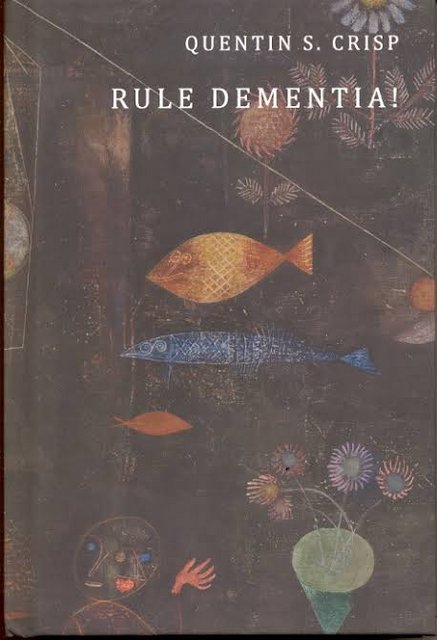
JI: As of this interview, you have a significant body of unpublished work that I would argue rivals anything you’ve published in terms of ambition and overall quality. The astonishing Susuki seems like the breakthrough novel the world was denied (although I have heard it is finally being readied for publication), and The Hideous Child is a novel that would seem strikingly in resonance with current debates around gender identity. And there are other, lengthy, perhaps still unfinished works like The Lovers and Domesday Afternoon that you’ve also invested significant time in, with the excerpts from them that I’ve read suggesting they could be monumental achievements. I feel as if public consideration of your work is haunted by these unpublished volumes, and that you’ve actually achieved far more than you’re currently being given credit for. Is there any reason for the long-term sidelining of so many books? Perfectionism, or simply lack of appropriate publishing opportunities? I think that all of these works taken together would significantly shift how you’re perceived as a writer.
QSC: This is a good question. I must shoulder most of the blame here, I think, though I'd like to reserve a small corner in which to rail against fate and that kind of thing. One of my earliest struggles as a writer was simply to finish things. I managed to solve that problem by planning stories in advance, with the classic 'beginning, middle and end' so that I would actually know where I wanted to go and when I had got there. Once I had got past this hurdle, however, a new pattern was set: I would finish one thing and immediately start on another, since I had so many ideas and didn't want to have any gaps in which I wasn't working on anything new; I was afraid to lose momentum. So, almost all my energy has gone into writing and not so much into revising and getting stuff published. It's been difficult to forge another pattern that works for me creatively. I'm not sure if others will understand how challenging this has been for me, but, well, it has.
One of the products of my trying to build a new pattern in which I stop to give a finished work the post-natal attention it needs has been the novel Graves. I'm not sure when I started writing notes for this. I think it was in 2013. The book itself was finished - again, if I remember correctly - at the end of 2015. This time I wanted to give the novel every chance it could get, so I took time to revise it and I spent a year or two approaching publishers outside of my comfort zone. None of them were interested. I got some very revealing feedback from one publisher whose practice was apparently to count the sales of previous books (which they can do in an inaccurate way from online data). In fact, this seems pretty much standard practice now, though it looks to me like a recipe for ghettoising any writers who have a modicum of originality. One of the publisher's readers apparently liked the novel a lot, but said it was not commercial. It seems like I would have stood a better chance if it had been my first book, since I would not have had the low sales figures from previous books to put them off. Anyway, after a year or two of this, I thought, "Why am I wasting my time?" and I submitted the novel to a publisher who has already taken a positive attitude to my work. So, the book came out four years after it was completed. And that, by my standards, is actually a pretty quick turnaround. It got a bad review at Publishers Weekly and has largely been ignored.
Anyway, I had made a point, for myself, of setting a new pattern with Graves. This is part of a larger plan of getting the backlog you mentioned out into the world. Susuki and The Hideous Child are the next part of this plan. Once I've finished revising a new novella called Hamster Dam, I'll set to work on revising Susuki, which already has a home. Then I'll turn my attention to The Hideous Child. You're right, by the way, about the gender identity theme in The Hideous Child. If I recall correctly, I was writing that in 2010. If it ever gets published it will look now like some kind of bandwagon thing, and I also think in the current cultural climate its original meaning will be distorted. But these are the pitfalls of working in a medium like the novel in the 21st century. The Lovers is unfinished even in first draft, and I think the moment might have passed for that one. We'll see. Domesday Afternoon - this might (I haven't revisited it for some time, so I can't be sure) be my favourite of all the things I've written. It's actually going to be a trilogy, if I get back to it. The first volume, Summerhill, has been written. The length of the thing might put publishers off, but I can count on the fingers of one hand the number of humans who have read it, anyway.
In short, it's a painstaking process. It really does feel like 'a life's work'. I think I'm largely kept alive by the idea that I haven't put out, or even written, my best work yet. This is the thing that makes me careful when crossing the road.
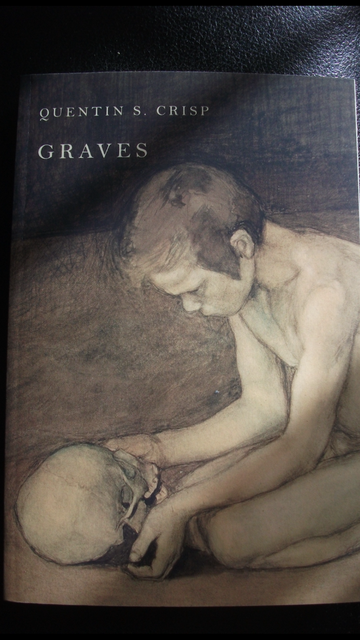
JI: At the time of our last interview, Chomu Press was just getting underway. Chomu was essential in creating a more or less sui generis approach to contemporary imaginative fiction, combined with a modern and unconventional design aesthetic. Even its critics admitted that it was “taking more risks than anyone,” and some of the writers it published have gone on to relative mainstream success and even been mentioned in legacy organs like the New York Times. The press seemed to inspire fierce loyalty in those who did ‘get’ what it was about, and the shadow of Chomu still hangs over writing. I’d argue that its presence is still missed, in that there is still something of a vacuum here in publishing. What do you see as being the legacy (and future?) of Chomu Press? Did it achieve what you intended it to, and do you think the current writing landscape is any different as a result?
QSC: Ah, well, I'm not sure I'm ready to talk about legacy; I don't think I have enough distance for that. I also find it hard to think about the future generally beyond the general question of, "Are we going to survive?", which seems to be a question in the minds of many, in one way or another, at the moment.
I think I would compare my present self loosely to George Bailey in It's a Wonderful Life at the point where his sweetheart-to-be, Mary, shows him a picture she has drawn of him lassoing the moon, since that is what he once said he would do for her, and he finds it a rather painful reminder of his youthful dreams.
I hope this doesn't sound too much of a downer. There's been a lot of pain for me in connection with Chomu. I even had to go into therapy at one point, but soon ran out of money for it. I was staring at train tracks for a while.
I suppose one day I might tell the whole story, but not yet.
If I talk retrospectively, I can say there were two main prongs to our mission. These were that writers who had previously been confined to the coterie by expensive limited editions might find a wider audience through attractively presented POD, and that people generally should realise there are a lot more interesting nooks and corners to contemporary writing than pure genre or the high street bookshop will give you any inkling of. The idea was not to 'give people what they want', but to give them what they might never have thought to seek out. There were also complex notes, that have been kept secret to this day, made in the Chomu database on the aesthetic we wanted in order to keep the catalogue unpredictable whilst having it retain a recognisable identity.
I honestly don't know how Chomu itself will be remembered, but I hope we have given some kind of help to the various authors, and that people will realise these books are worth holding onto, paperback though they may be.
I realise I've been talking in the past tense. Chomu is pupating at present. We'll have to see what emerges.
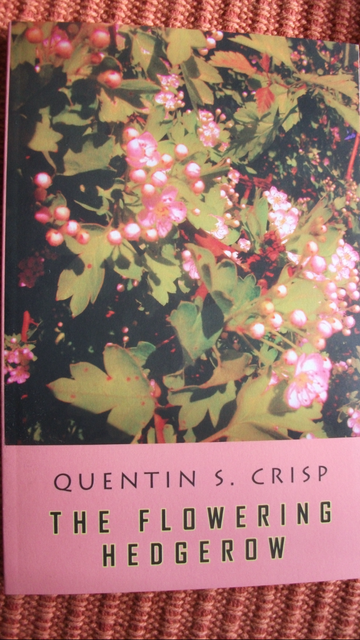
JI: In recent years you've come out even more strongly against what you see as the detrimental effects of transhumanist philosophies and the scientific worldview in general, even taking aim at virtual modern saints like Alan Turing, as being precursors of a reductive materialist worldview. It's safe to say that this perspective is going to alienate or at least thoroughly challenge a lot of people, because it really does cut against the grain of the generally atheistic, “rational” intellectual elite of the modern Anglosphere, a large section of which also forms the publishing industries and current (Neo-Passeist) literary scene. And as with most generally trenchant criticism, it seems targeted at assumptions these types take for granted and aren't used to seeing called into question. There were hints of this direction in your fiction as far back as fifteen years ago, in a story like “The Fairy Killer,” with its smug rationalist uncle wilfully refusing to accept the consequences of his actions, but in more recent stories and novels such as Out There, Graves, and the forthcoming Hamster Dam, the conflict is given the intensity of a life and death struggle. In these works there’s a deep impression conveyed that something has gone wrong with humanity, almost a kind of sickness or cancer, the effects of which are being felt on all levels of existence, from everyday life to more ethereal realms. Apocalyptic themes are never in short supply in popular culture, but I sense that, as with elements of disdain towards heterosexuality present in your earlier fiction, this hatred of Scientism goes much deeper for you, almost to the level of a personal grudge. Given that many readers will be coming from a default perspective of seeing science as the savior (for problems created by science), how would you explain your position here? I'm also interested in a clarification of any possible oppositional or hopeful elements that you've put forward along the lines of a “Dark Daoism” or “Magical Daoism,” as to date your stories and essays on these themes have appeared in relatively obscure publications, meaning most readers are likely unfamiliar with them (although some of this ground is alluded to in your Neo-Decadent Manifesto of Immaterialism, which will be released next year).
QSC: There's a lot for me to get my teeth into here.
First, my antipathy to science (or what people these days call science) goes way back. I hated science at school. So ... I suppose I want to convey that this is not 'learned behaviour' on my part. It happened from the first time I encountered 'science' in the classroom and it runs mysteriously deep. Now, you can take two different stances to this fact, at least. One is to say that it is an irrational prejudice and another is to say that it is a strong instinct worth investigating. I have, indeed, questioned whether it is an irrational prejudice, but the fact is, try as I have to take on board the arguments of the apostles of science, the same thoughts and feelings always return. The instinct is pretty strong. I have accepted that it's pretty fundamental to me, and if it is going to be answered, it has to be answered at a much deeper level than any answer that has yet been made to it.
I would say that intellectually my position has shifted a little - and this doesn't apply only to my views on science and technology - so that I see the situation more in terms of dilemma than in terms of, I don't know, 'fighting the good fight', let's say. So, in this case the dilemma might be condensed into the question: should humans have remained hunter-gatherers, more or less in harmony with their environment, even though that was a harmony of a fairly unforgiving food chain, or should we have taken the road that most of us did in fact take, into greater comfort and invention and to the brink of complete self-destruction? This simplifies the dilemma, but I don't think it needs much explaining. Or perhaps there was a technological sweet-spot where it would have been better to remain. It has been suggested to me that looming civilisational crises might take us back to a Victorian level of technology. I think I would actually welcome that.
But, whatever the answer to the dilemma posed above, I think there has long been philosophical ballast in the world-view of our science-worshipping age that is, in itself, destructive. I am not sure whether that unspoken, generally assumed philosophy can be decoupled from science or not. At the very least, it distracts us from developing in any other way than materially. But I think it does much worse than this and is actually poisonous. There's a quote from Chesterton that goes: "A Russian pessimist will denounce a policeman for killing a peasant, and then prove by the highest philosophical principles that the peasant ought to have killed himself. . . . The man of this school goes first to a political meeting, where he complains that savages are treated as if they were beasts; then he takes his hat and umbrella and goes on to a scientific meeting, where he proves that they practically are beasts." If we change some of the nouns here, this remains relevant and true today. I don't really see how you can be a materialist and be in favour of human rights. The two, as far as I am concerned, are in direct contradiction to each other. And it's basically materialism that seems to form the philosophical ballast I'm talking about. I mean, what good does Daniel Dennett think will come of proving that there is no such thing as a conscious subject? What lives will matter under such a conclusion? The 'no lives matter' joke that people find to be in such bad taste (often accompanied by pictures of Cthulhu or a spiral galaxy denoting 'space is big and sciencey'), really only highlights this contradiction at the heart of modernity that no one seems to want to face.
In terms of oppositional elements, one of the ideas I want to go more deeply into is that you can have movement or development without the assumption of a single forward line, which always seems to mean some kind of technological and literal arms race. We can also change the frontiers of our aspiration. What if as much effort was put into exploring the frontier of dream as is currently put into exploring space? Would we, perhaps, feel a bit less like we're trapped on an uncanny spherical island? I mean, that's just an example, or a suggestion, you could say, but there are so many things like this to explore that I think could make the present more meaningful to us so that time is not just a matter of chasing some will o' the wisp of technology into the outer swamp of dehumanisation.
And if we can't avoid thinking about the future, we can change the way we think about that, too. I was talking to a philosopher friend, Cyrus Pacquin, recently about science fiction and he complained about how depressing it is - everything made of metal, nothing organic, all the settings really sterile and inhospitable. I suspect that science fiction writers have actually steered us in that direction. That is what we have come to assume the future must look like. We set our controls for the heart of dystopia. I think the least we can do, as fiction writers, is imagine alternatives so that the default human image of 'the future' is not the Bladerunner cliche.
In terms of the Daoism thing, this is part of my project of imagining a more attractive future than the cyborg megalopolis future we're currently being sold. The idea is, imaginatively, to go outside the box and picture technologies based on entirely different principles to our current tech. I suppose I'm hoping that my studies will help me make this partially practical, too, and not merely visionary. I also have an idea, that I want to develop, about language being a kind of spiritual or intellectual technology.
Maybe these oppositional elements sound weak. Maybe, indeed, they are weak. But I'm working on it.
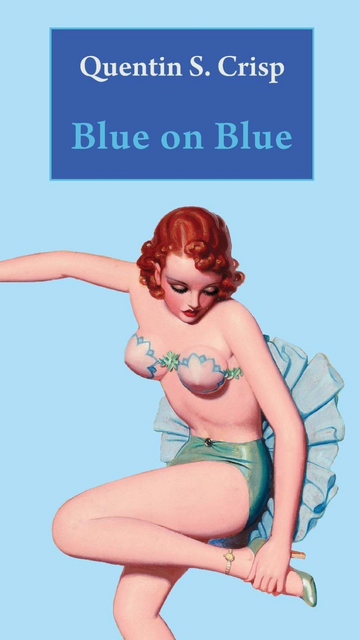
JI: As is customary at the end of an interview, can you suggest any books, films, artworks or pieces of music that you consider to be important, either representative of where writing and art are “at” at the moment, or where you would like to see them go (these don’t have to be works released in the 21st century, although I’m interested in what current productions interest you now)?
QSC: This is actually a difficult question. I'm not sure I've ever had much of a grasp of at-ness or that I'm really an at-man.
Maybe we shouldn't overlook the obvious. There are things that go without saying for me that are perhaps alien to others. For instance, if you're a writer, you're likely to have a very different view of the writing world to someone who has only been a reader. A large part of this difference comes from survival bias. The reader will have a view of writing based on the 'survivors'. Though they will have heard tales of writers starving in garrets and swallowing arsenic, even these tales will be of writers whose names live on after them, so their deaths are viewed through a filter of poignant, as-if-destined fame. But there are plenty who merely starve, or kill themselves, or go mad, or drift into obscurity, and are not posthumously romanticised for it. And there are those - perhaps the majority - who, after many years, simply stop, and lead something that passes for a normal life. Most writers, while we still live, are in complete ignorance as to whether the posthumous filter will transform our lives in the eyes of others, which means, for us, there might as well not be such a transformation. Even many dead writers now famous (I can't guess at the proportion) really lived in this kind of limbo. And, being a writer and editor, I know many such people. I feel like we could chorus, with Winston Smith in Nineteen Eighty-Four, "We are the dead!" So, this is at-ness for me - this limbo.
With that preamble out of the way, maybe I should start with mention of some of the Chomu fam - yourself, Brenpyon (Brendan Connell), Markitty (Mark Samuels) and so on. I don't know if it would surprise you to hear that I have remarked on occasion to others that even if Chomu Press had only released your debut collection (I Wonder What Human Flesh Tastes Like), that alone would have justified its existence. I also feel that the publication of some of Brenpyon's work was foundational in actualising the Chomu aesthetic. I think too many writers these days don't understand the way in which literature built itself up over the centuries as a kind of brocade of allusion. Literature feeds on the past and strengthens the past in doing this. Literature is not just instinct. You need to be a reader, too. The allusive aspect of literature is like a kind of initiation. Anyway, to me, Brenpyon's work is built on a strong understanding of this fact. I think he's one of the few Western writers, for instance, who can write in an Eastern style and not just stick the worn-out tropes in a Western narrative. Markitty is, I think, like myself, something of a romantic, and his continued (some would say contrarian) presence and staunchly macabre fiction help keep a pulse in the corpse of small press weird/horror fiction. With Markitty, I think it's worth mentioning his novel A Pilgrim Stranger, which was something of a departure for him, being ... I'm not even sure how to describe it. It's a kind of satire that shifts from Britain in the eighties to the present day, in the manner that something like Back to the Future shifts from the fifties to the eighties. It doesn't seem to have got the attention it deserves, possibly because it's very different from his other work, having overt religious themes and not being 'weird' in the conventional genre understanding of that word.
For me, this is all stuff that is happening and alive, precisely (if only partly) because we don't know the future verdict. We may be the dead, but we're the living dead!
People should also check out the extant Chomu catalogue. I'm not going to list every book, but Nick Jackson, Joe Simpson Walker, P.F. Jeffery, John Elliott ... these are all authors I think people should pay attention to.
I also want to say that I've been in close contact with the work of Zdravka Evtimova recently, and I think her name should be more widely known. She's a Bulgarian writer who writes these really mordant, somewhat dream-like stories with a wonderfully oppressive emotional tone to them - sometimes set in Bulgaria or elsewhere in Europe, sometimes in a desert place that I think might be Afghanistan, sometimes on other planets. There's a feeling of nightmarish deadpan to the narratives. Many of the stories seem to feature bootleg alcohol, and perhaps that's a reasonable metaphor for the stories themselves. They have a strange effect.
Having read some Damian Murphy, who is also interviewed on your blog, I notice that his stories often attain an atmosphere of unique mystery. This is not something that you can fake, I think, so people should look to that quarter for further developments.
Departing from the writing scene as I know it, I've recently become interested in podcasts. I like to have something on while I'm cooking meals and so on. It might not seem like my world, but I've been enjoying the Reply All podcast, which is very good on honing a narrative out of internet-related rabbit-holes. There's a real novelist's fascination, for me, in hearing things about the kind of companies who supply muzak to supermarkets and so on. Anyway, following a Podcast trail, I found this really interesting podcast called Constellation Prize, by Bianca Giaever. One of the 'episodes' is an interview with the film-maker Caveh Zahedi. From that I went on to watch his series for BRIC TV, The Show About the Show. It completely demolishes the fourth wall. It's not just clever, either, it's actually really raw and feels genuinely risk-taking. So, that was the most interesting TV production I've seen for a long time and makes me think that there's plenty more to do with the medium.
Generally, I am just beginning to think, myself, about the possibilities of the podcast medium and online video uploads. I think the lack of a strict TV schedule might mean the freedom to do some really interesting things. People are already doing that, of course. You have a channel like ContraPoints, for instance, on YouTube. I'm not a fan, I have to say, but at least it demonstrates that people are thinking about their creative opportunities. (By the way, this is a kind of a tangent, but has anyone looked into whether PewDiePie's endorsement of Mishima has given momentum to the recent batch of new translations into English? I watched one of his videos where he talks about Mishima and was surprised, not only that Mishima is his favourite author, but that he had intelligent things to say about him. I mean, this is the kind of Bizarro World we're living in right now. I think there are a lot of stereotypes that are really long overdue for the knacker's yard. The old labels are so inadequate now that more than half our current paroxysmal psychosis probably comes from our still using them. Not only that, there seems to be a whole industry based on churning out ever more bewildering derivative sub-labels.)
I'm not a techy kind of guy (I had trouble just getting my printer working the other day), so I'm not likely to start a podcast myself, but if anyone out there would like me on their podcast and can tolerate someone with a very slow voice, they should get in touch. Maybe I've spent too long on this answer, so, although many other things now occur to me, I'll just mention one of them. I have recently read the biography of Kate Bush, Under the Ivy, and one thing it has made me think about is the fact that her music has never had what I think is called 'attitude'. This is remarkable and intriguing, since the subject matter of her songs is very often - I hate to use the term - 'dark'. I think for a long time, and I'm not exactly sure when this started, there's been an assumption that an artist must be consumed with resentment in order to have something to say. I know this has been a major ingredient in my own work. But clearly, it's not essential. Art itself, whatever the case might be with individual artists, does not require it. And maybe one's canvas even becomes larger when one dispenses with resentment. If one can. I think this is worth serious thought, to say the least.
Quentin S. Crisp photographs copyright Joe Campbell and Oscar Oldershaw
________________________________________
BUY GRAVES
BUY THE FLOWERING HEDGEROW
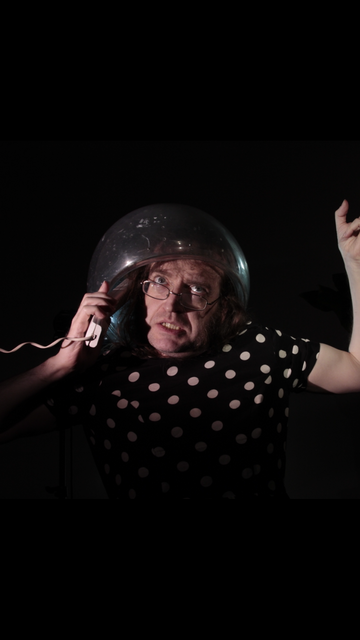
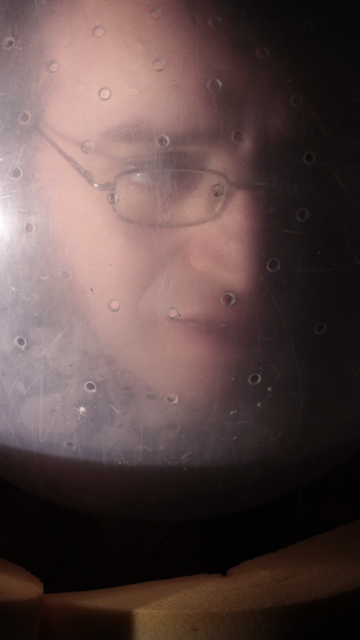
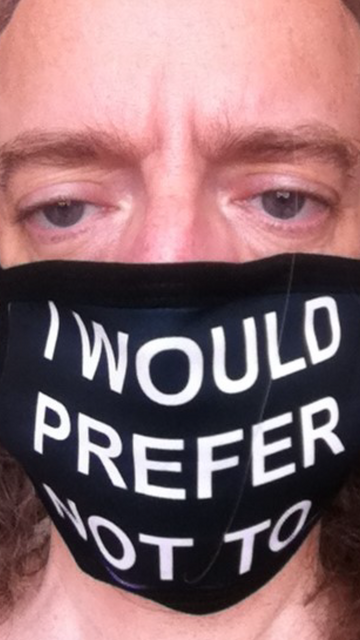
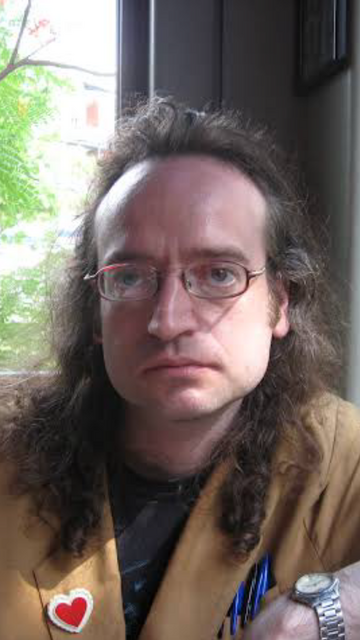
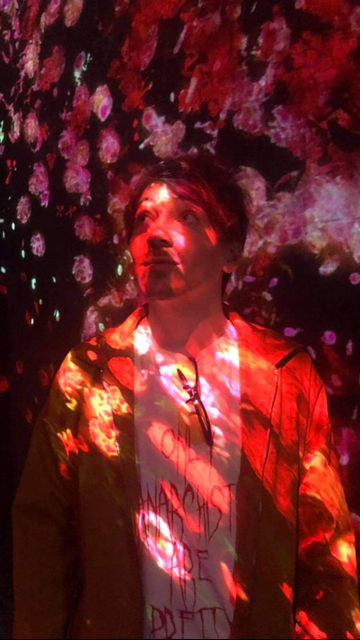
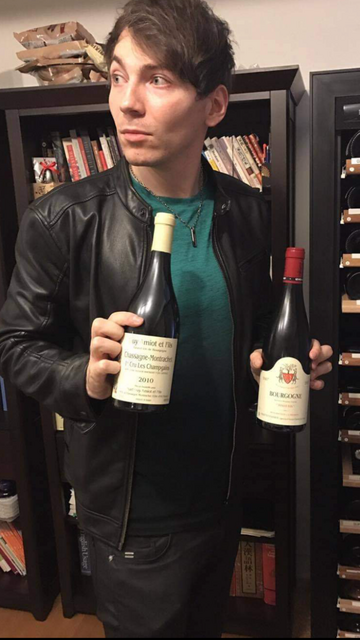
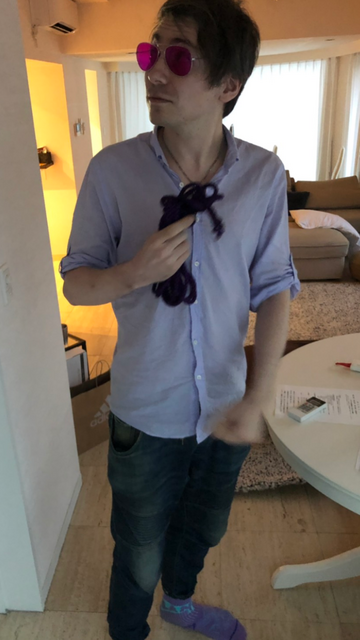
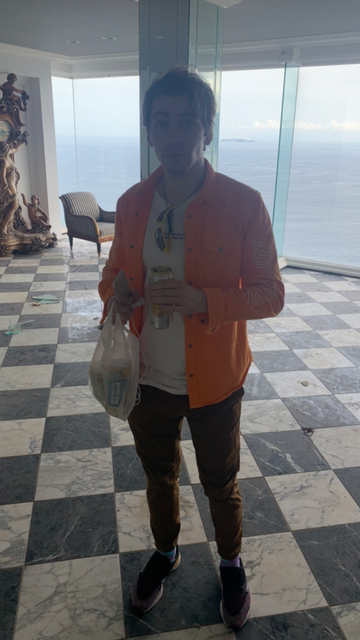



No comments:
Post a Comment